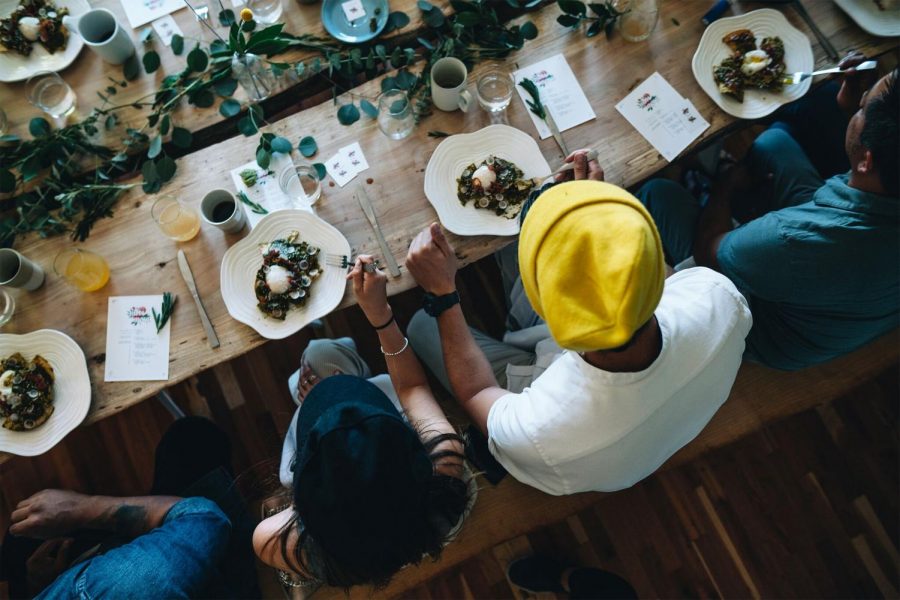Chicagoan serves cannabis as conversation changer
December 4, 2017
Growing up in Chicago, Manny Mendoza had two primary interests: smoking pot and cooking.
After recreational marijuana became legal in California in November 2016, Mendoza moved to San Diego, combined his two interests and created Herbal Notes, a supper club that serves cannabis-infused food around the country.
Mendoza said he hopes the supper club will shine a light on the benefits of marijuana and educate consumers while they enjoy a cannabis-infused meal and cocktails. The guests vary according to the state and its laws, he said.
After the Illinois Department of Public Health passed the Medical Cannabis Pilot Program, which allows qualifying patients to use medical marijuana, in August 2013, Mendoza decided to bring Herbal Notes to his hometown of Chicago. On Dec. 4, Herbal Notes will be serving a six-course, cannabis-infused meal to patients approved for medical marijuana usage.
The Chicago restaurant pop-up will also feature an entrée by Chef Daniel Espinoza from Lobo Rey, 1307 S. Wabash Ave., who will be serving cannabis-infused bone marrow tamales as one of the six courses.
The dinner will educate patients about the benefits of marijuana both for patients and the city, as well as ways it can be incorporated in food, according to Mendoza.
“It is hard to make a well-informed decision if you’re not informed or were misled for years and don’t know anything about the plant,” Mendoza said. “We can explain how this plant can be used as a medicine to enrich and enlighten [people’s] lives.”
Mendoza declined to share the meal’s location for privacy.
Also looking to promote marijuana’s benefits, Louis Silverstein, former distinguished professor in the Humanities, History and Social Sciences Department, wrote “Deep Spirit & Great Heart: Living In Marijuana Consciousness” in 2002. The book was written to inform the public about what marijuana is and can do, according to Silverstein.
“Marijuana has been used many years in our culture for medicinal purposes,” Silverstein said. “It can take one’s consciousness away from pain, and when you remove consciousness from pain, it allows healing to occur.”
Silverstein said marijuana is also used to treat those who have experienced emotional trauma, such as rape victims or soldiers coming back from war with post-traumatic stress disorder. He said the drug helps the victims forget those negative experiences.
Beatriz Carlini, a senior research scientist at the Alcohol and Drug Abuse Institute and associate professor at the School of Public Health at the University of Washington, said the use of marijuana is different for everyone, and it affects people differently based on demographics.
“We don’t need to have a positive or negative conversation about cannabis,” Carlini said. “We need to have a realistic conversation that encompasses the good and bad aspects of using cannabis.”
Legalizing marijuana benefits everyone because the taxation generates revenue that can be used to fund city projects and after-school programs for Chicago Public Schools, Mendoza said.
Mendoza said he educates his guests at Herbal Notes in hopes of changing the stigma around the drug.
“We want to bring in education, wellness, social responsibility [and] tie all of that into the way we bring up and have a dialogue about cannabis,” Mendoza said. “The cannabis is used almost like a glue to bind everybody together and have them vibing at the same wavelength so that they’re all in tune and engaging [with] each other in a deeper way.”








